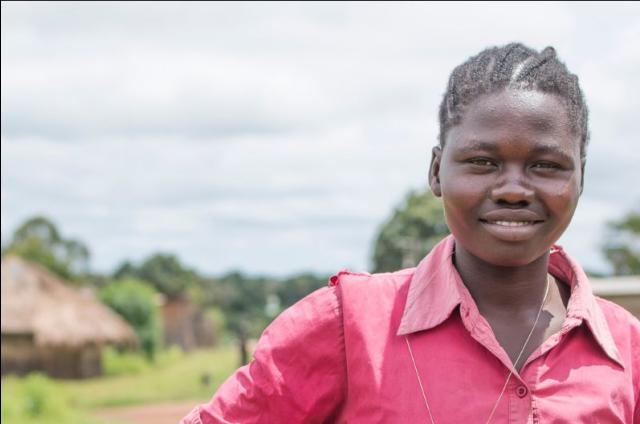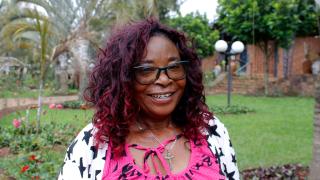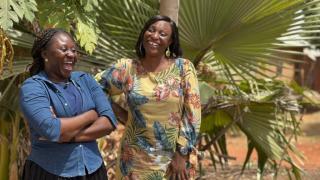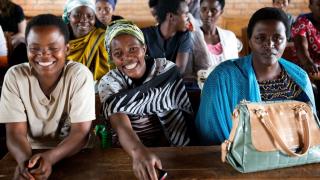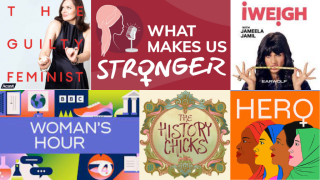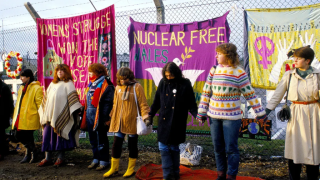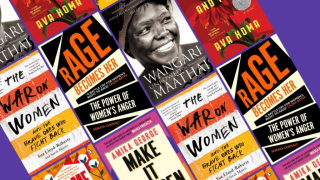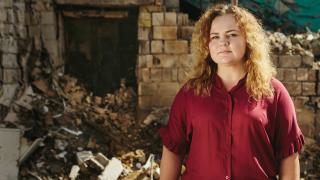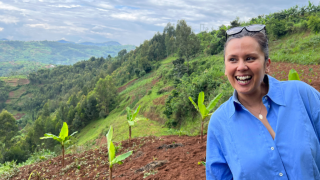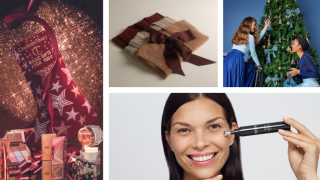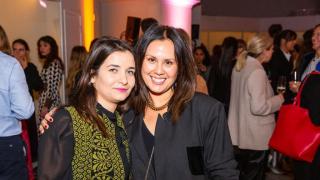From Conflict to Collaboration: A Couple's Transformation
From Conflict to Collaboration: A Couple's Transformation
The journey of two graduates of our programme, Mawa and Jackline, finding peace through our programme
Mawa and Jackline have been married for six years. They live in Wuluturu, Yei River County, South Sudan, with their two children. Their marriage was on the brink of collapse when they were enrolled in our Couples Connect Pilot Programme.
Today, Mawa shares that they now live together in harmony. Here is his story.
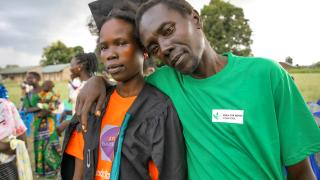
In my culture, being a man means being the head of the family. This title comes with responsibilities but also a lot of privileges.
As the head of my household, I was raised to be the sole provider and decision-maker. Everything I said or did was final. My wife wasn’t supposed to seek financial independence or earn a living; she was meant to stay home and take care of the family.
This belief shaped my expectations when I got married.
To my surprise and frustration, my wife was not the obedient woman I expected. She had a mind of her own and wanted to contribute financially. She would buy things for our home without my input, prepare meals with money I hadn’t given her, and even engage in small businesses and casual labour to make her own money. This independence didn't sit well with me. I was suspicious - where did she get the money? Why was she always away from home? Was she trying to compete with me or, worse, undermine my authority?
My suspicions turned to anger. I verbally insulted her and sometimes became violent. I threw away food she prepared with her own money and restricted her movements.
Our home became a battleground, and we became enemies living under the same roof.
One morning, my wife suggested we join the Couples Connect Programme with Women for Women International.
Initially, I was hesitant. But she mentioned that we might receive financial support if we attended together. Reluctantly, I agreed, motivated only by the prospect of money.
As we participated in the programme, something remarkable happened. We learned about teamwork, sharing responsibilities, effective communication, problem-solving and financial management.
Slowly, I began to understand and appreciate my wife’s efforts.
We started talking again, discussing business, farming and our children. I began supporting her business and we started working together. By the end of the programme, we received some capital, which we invested in her business.
Today, our lives are transformed. I can relax a little, knowing that I don’t have to shoulder every burden alone.
We are a team.
Recently, I developed an illness that affects my ability to walk or stand, making it difficult for me to work. My wife has become the primary breadwinner, contributing up to 70% of our family’s income. I now support her as best I can.
I am grateful to Women for Women International for this life-changing programme and for giving me another chance at love.
I am also grateful to my wife for being strong and persistent.
Without her, I don’t know how I would manage in my current condition.
To all women, I encourage you to support your husbands and not give up on your families. And to the men, I hope you learn from my experience: support your wives, and if you can’t support them, at least don’t stand in their way.
keep reading
5 Things to Know About Sudan
subtitle:
As so many people are uprooted from their homes and forced to leave their land in Sudan, they carry a rich culture and heritage with them. While we raise awareness of the war that wages on and amplify the voices of Sudanese women suffering, we must also keep the richness of Sudan's culture and heritage alive. Here are five facts you should know.
7th April, 2024 marks 30 years since the genocide in Rwanda. Kakuze Marie Emerance, a survivor and now a trainer at our Women's Opportunity Centre shares her story, from the tragedy of the genocide to forgiveness and reconciliation.
Restoring hope, one woman at a time
subtitle:
Athiya Nemani Micah and Ruth Benjamin Raumna have been social empowerment trainers in Nigeria for over six years. Read about the transformation they've seen in women as they gain power and confidence in our programme.
By standing with women survivors of war, you are helping them realise their power and full potential. Find out more about how you can become a Stand With Her supporter and join our global community.
Shop to support women who dare
subtitle:
To mark International Women's Day 2024, we are partnering with remarkable brands that are committed to making a difference to the lives of women around the globe. Discover how you can shop with purpose and support women survivors of war this March.
This Women's History Month, explore new perspectives on feminism and womanhood by delving into these podcasts. From career advice to current affairs, each episode is sure to remind you of your inner power and the change we can make if only we dare challenge the status quo.
The power of art for activism
subtitle:
When art an activism are brought together, they have the incredible power to overcome cultural and language barriers, allowing marginalised voices to take centre stage. Learn more about the courageous women daring to use art to challenge the status quo and drive positive change in their communities.
Women's History Month Book List
subtitle:
Feed your mind this Women's History Month with books from women writers. Their powerful words and stories honour women throughout history and across the globe - their lives, experiences and courage to drive change.
Ukraine Two Years On
subtitle:
Anna Orel, Iryna Andreieva and Anna Mnishchenko from our partner organisation in Ukraine share their experience of war and supporting women, two years after the war in Ukraine started.
The highlights of my trip to Rwanda
subtitle:
In December 2023, Sara Bowcutt, Women for Women International - UK's Managing Director, went on a donor trip with our partner Allen & Overy to show them the amazing impact our Stronger Women, Stronger Nations programme can have on the lives of women survivors of war. We asked her to reflect on the trip and share three of her favourite highlights.
Giving Tuesday 2023
subtitle:
Shop with purpose this Giving Tuesday. You can stand in solidarity with women survivors of war while shopping with our partners.
Celebrating 30 years of Sisterhood
subtitle:
This month, we celebrated our 30th Anniversary with a special evening at the V&A Museum. In her speech, our Managing Director Sara Bowcutt, reflected on the power of sisterhood to transform and rebuild lives following war.

